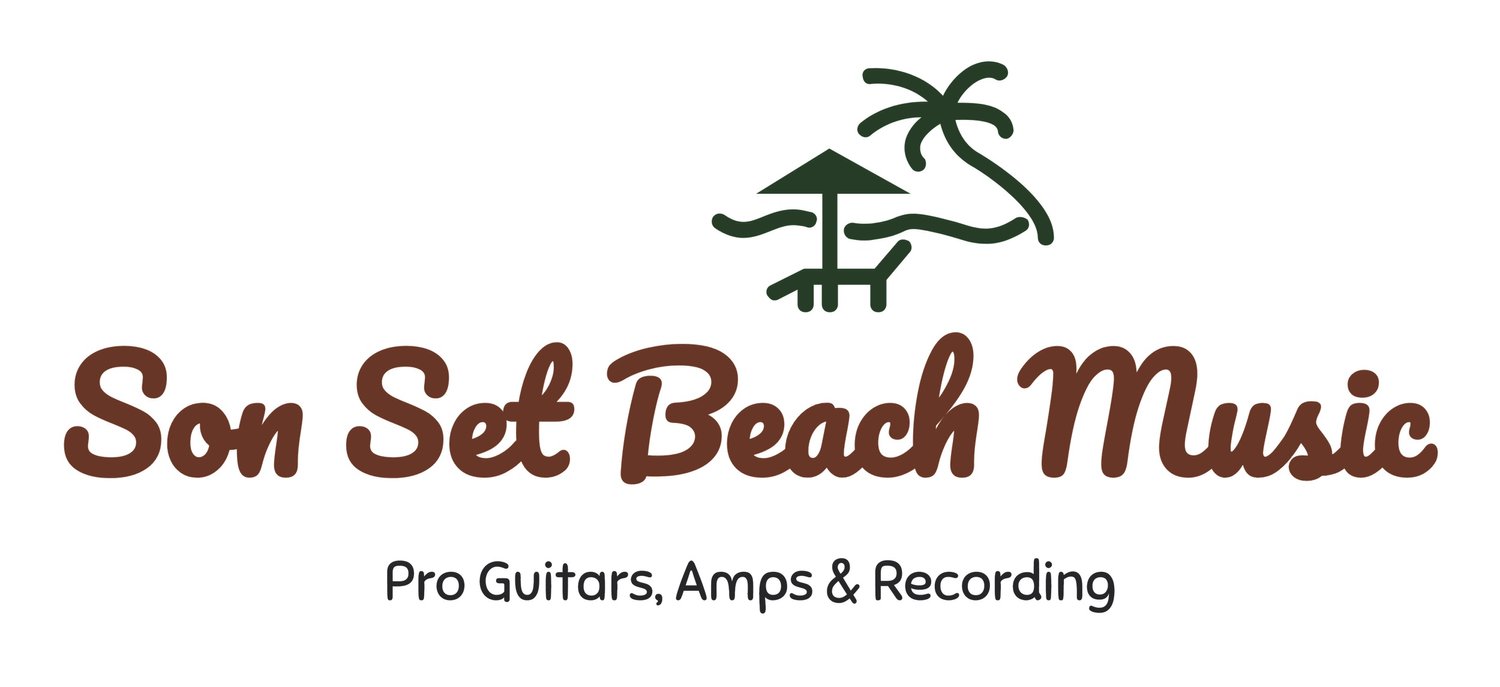Music Recording
with Son Set Beach Productions
As you may know recording audio and music has several areas that a recording studio must be involved with. There are many ways that a studio must take time to evaluate and prioritize the musical data and procedures in order to have positive and quality results.
Today this is Part 1 of a series of interesting and meaningful articles that I will share with you. After living in the music business, and traveling to so many places around this beautiful world, I have a few opinions and sonic revelations that I can share with you. As we all know there are so many genera's in music today. We can speculate what the future may hold for the music business however there is one thing for certain; the music is going to change.
Most of the professionals will agree that there are certain stages to the recording process. The following is general and common checklist that we can use to set the stage of audio recording. And they are:
• Recording • Editing • Mixing • Mastering • Printing
Yet first let us look at a wonderfully good yet often overlooked phase in the music-recording world that normally precedes the actual studio-recording phase called pre-production.
• Pre-Production The natural habitat of the record producer is often assumed to be the recording studio, for obvious reasons. But only part of the process of making a successful recording takes place there. Before the producer and band or artist even enter the studio, there is likely to be a period of pre-production, to work on the music, the arrangements, and allow the musicians and producer to develop their ideas. To do all of this in a studio costing hundreds of dollars a day would be wasteful. Of course, there are some bands that practically live in the studio from day one. The Rolling Stones are famous for coming into the studio with their instruments, entourage and hardly anything else. If you can afford it, this way of working has a lot to commend it. Not only does it concentrate the mind, it allows spontaneity and encourages experimentation. If the tape is rolling continuously, there is every opportunity for the magic of the moment to be captured for further development -- but few of us could possibly afford to work in this way.
During this stage, all the initial decisions are made regarding the recording. What is the purpose of the recording (i.e., demo for shopping or submission, indie release, song for download sales, Film scoring, internet music, just for fun, etc.)? What style of music will you be recording? Who will be playing what instruments, or what sounds will you use for the recording? Where will you record, mix and master the recording? Where is the budget coming from, and/or how will you raise the money for the project? How many songs will you be recording, and who will be involved in the writing? Will you need to hire musicians to play on the recording or will you and/or your band perform everything? When do you need to complete the recording by?
SOUND SOURCE SELECTION
This does not have to be a 'formal' process, but is nonetheless an important part of the project recording process. Everything that happens down the line in terms of the quality of the recording will be influenced by the sound source selection. Sound sources include the brand and model of instruments, the quality of the samples, and the caliber of the soft synths and virtual instruments. Of course, the vocals are an important sound source, so the quality of the vocalist counts as well. Use sound sources of low quality, and you will be paying the price the rest of the way. Great sounding sound sources (performed and recorded well, of course) will make it much easier to mix the songs later on.
SELECTION OF PERFORMERS
Naturally, if you are either in a band or performing as a solo artist, you will most likely pick yourself or your band members to play all the instruments and handle all the performances. The selection of the performers is the next most important thing after the sound source selection. Great sounding (high-quality and well maintained) instruments played with passion by great performers can overcome even a bad recording. Therefore, put your ego aside and get the best performers to perform on the recording. If you consider yourself the best performer by virtue of the fact that it is your music and you a unique passion for the performance and understand the songs the best, then that can also be a valid argument for performing the songs yourself.
WRITING
Once the pre-production is complete, the writing process can proceed efficiently. Time isn't wasted trying to figure out all the things that have already been covered in the pre-production stage, and instead everyone can focus on writing the best songs they can possibly come up with for the recording.
REHEARSAL
Not all bands have the time or patience to rehearse prior to their recording. Nevertheless, it is a crucial part of the process because this is where you can discover different ways to perform the song; including what the right key is, how the tempo feels, click track familiarity, etc. Often, this part is combined with the writing process. Some performers use the recording process to rehearse, which is a waste of time and money.
Wow, that was Pre-Production. Man I cannot wait until we get into the actual production part of the gig. Well that is next my friend. That is soon coming to a studio near you.
Next we will look at the succeeding phases of our recording studio journey. Starting with the tracking process. Or as we like to call it; Recording.
Well that was fun. Wait till Part 2. It gets better my friend!!





